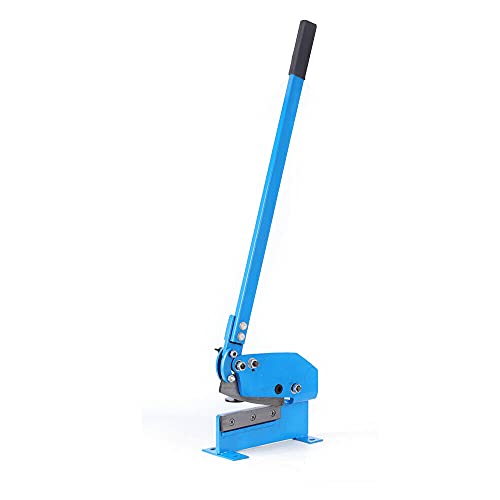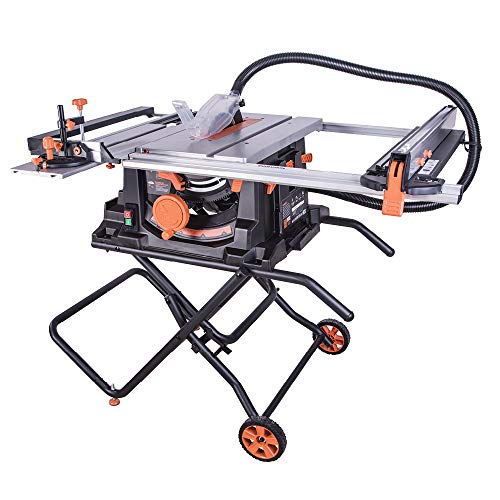How To Make Mitre Cuts With A Circular Saw

If you’re a DIY enthusiast or a professional carpenter, chances are you’ve come across the need to make mitre cuts. Whether you’re working on a trim project, building furniture, or installing baseboards, mitre cuts can add a polished and professional look to your work.
When it comes to making mitre cuts, one of the most versatile and commonly used tools is a circular saw. With its portability and ability to cut through various materials, a circular saw is a great choice for both small and large projects.
The key to making accurate and clean mitre cuts lies in understanding the proper technique and using the right tools. In this article, we will guide you through the step-by-step process of making mitre cuts with a circular saw, from choosing the correct blade to setting up the saw and making precise cuts.
So whether you’re a beginner looking to improve your skills or an experienced woodworker in need of a refresher, read on to learn how to make mitre cuts with a circular saw like a pro.
Mitre Cuts: The Ultimate Guide
When it comes to making precise and clean cuts in woodworking projects, mitre cuts are an essential technique to learn. Whether you’re building furniture, installing trim, or taking on any other type of woodworking project, being able to create accurate mitre cuts will greatly enhance your skills and the overall quality of your work.
What is a Mitre Cut?
A mitre cut is a type of angled cut made on the end of a piece of wood. It involves cutting through the wood at a specific angle to create a joint that fits together seamlessly. Mitre cuts are commonly used to create corners, such as those found in picture frames or mouldings.
Tools needed for Mitre Cuts
One of the most common tools used for making mitre cuts is a circular saw. The circular saw is versatile, portable, and allows for precise cuts when used with the appropriate techniques. In addition to a circular saw, you will also need a mitre saw or a mitre box, a measuring tape, a pencil, clamps, and safety gear such as goggles and gloves.
Steps to Make Mitre Cuts with a Circular Saw
1. Measure: Begin by measuring the length you need for your mitre cut on the wood. Use a measuring tape and mark the measurement with a pencil.
2. Set the angle: Determine the specific angle you want for your mitre cut. Adjust the angle on the circular saw or the mitre saw accordingly.
3. Secure the wood: Use clamps or a vice to secure the wood in place, ensuring it won’t move during the cutting process.
4. Line up the cut: Position the saw blade on the marked line, making sure it aligns with the angle you set. Hold the saw firmly with both hands.
5. Make the cut: Turn on the saw and guide the blade through the wood with a slow and steady motion. Keep your hands and fingers away from the blade at all times.
6. Test the fit: Once the cut is made, test the fit of the two pieces by aligning them together. Make any necessary adjustments if the joint doesn’t fit perfectly.
7. Sand and finish: After the mitre cuts are complete, sand the edges and apply any desired finish to the wood for a professional and polished look.
With these steps, you’ll be well on your way to mastering the art of mitre cuts with a circular saw. Remember to always prioritize safety and practice proper techniques to achieve the best results. Happy woodworking!
The Basics of Mitre Cuts
A mitre cut is a type of angled cut that is commonly used in woodworking and carpentry projects. It involves cutting a workpiece at a specific angle, usually 45 degrees, to create a clean and precise joint when two pieces of wood are fitted together.
Mitre cuts can be made using various tools, including a circular saw. A circular saw is a versatile and powerful tool that is commonly used for making straight cuts, but with the right technique and proper setup, it can also be used to make mitre cuts.
Here are the basic steps to make mitre cuts with a circular saw:
- Measure and mark the desired angle of the mitre cut on your workpiece.
- Secure the workpiece firmly in place using clamps or a vice.
- Adjust the bevel angle of the circular saw to match the desired angle of the mitre cut.
- Set the depth of the circular saw blade to slightly deeper than the thickness of the workpiece.
- Carefully align the saw blade with the marked line on the workpiece.
- Hold the saw firmly and make a slow, controlled cut along the marked line, keeping the saw blade aligned with the line.
- After making the cut, release the trigger of the circular saw and wait for the blade to come to a complete stop before removing it from the workpiece.
- Check the quality of the mitre cut and make any necessary adjustments.
It is important to take safety precautions when making mitre cuts with a circular saw. Always wear safety goggles, gloves, and ear protection. Keep your hands and fingers away from the blade, and make sure the workpiece is properly secured to avoid any accidents.
With practice and experience, you will become more comfortable and confident in making mitre cuts with a circular saw. Remember to measure twice and cut once to ensure accurate and precise results for your woodworking projects.
Choosing the Right Circular Saw
When it comes to making mitre cuts with a circular saw, having the right tool for the job is crucial. Here are some factors to consider when choosing the right circular saw:
| Factor | Consideration |
|---|---|
| Blade Size | Make sure to choose a circular saw with a blade size that matches the type of cuts you plan to make. Smaller blades are suitable for smaller cuts, while larger blades are better for larger cuts. |
| Power | Consider the power of the circular saw. More powerful saws will be better suited for cutting through thicker materials. |
| Bevel Capacity | If you plan on making bevel cuts, make sure the circular saw has a bevel capacity that matches your needs. Different saws have different bevel capacities, so choose one that suits your specific requirements. |
| Adjustability | Look for a circular saw that offers easy and precise adjustments. This will allow you to make accurate mitre cuts without any hassle. |
| Ergonomics | Consider the ergonomics of the circular saw. A comfortable handle and balanced weight distribution will make it easier to control the saw during cuts. |
| Price | Lastly, consider your budget. Circular saws vary in price, so choose one that fits within your budget while still meeting your requirements. |
By considering these factors, you can ensure that you choose the right circular saw for making mitre cuts with precision and ease.
Step-by-Step Guide to Making Mitre Cuts
Mitre cuts are essential in woodworking projects when you need to join two pieces of wood at an angle, usually 45 degrees. With a circular saw, making accurate and clean mitre cuts becomes a breeze. Follow these steps to achieve professional-looking results every time.
Step 1: Measure and Mark
Start by measuring the length of your wood piece and determining the desired angle for the mitre cut. Use a pencil to mark the starting points and ending points of the cut on each piece. Ensure the marks are visible and clearly define the angle you need.
Step 2: Set the Blade Angle
Next, adjust the angle of the circular saw blade to match the desired angle for the mitre cut. Most circular saws have a bevel adjustment that allows you to tilt the blade. Use an angle guide or a protractor to ensure accurate alignment.
Step 3: Set the Cutting Depth
Adjust the cutting depth of the circular saw to slightly deeper than the thickness of the wood. This ensures a clean and complete cut. Refer to your saw’s user manual to learn how to adjust the cutting depth properly.
Step 4: Clamp the Wood
To ensure your wood pieces stay in place during the cut, use clamps to secure them firmly to a work surface. This prevents any movement or slipping, resulting in accurate cuts and reducing the risk of accidents.
Step 5: Cutting Techniques
Position the circular saw along the marked line of the wood. Firmly grip the saw with both hands, ensuring a stable and controlled grip. Start the saw and slowly guide it through the wood along the marked line, applying steady pressure to maintain a smooth and straight cut.
If you’re making a through-cut, make sure to provide support on both sides of the wood to prevent any tear-outs or splintering. You can also use a sacrificial piece of wood underneath the workpiece to minimize tear-outs.
Step 6: Test the Fit
After making the mitre cuts on your wood pieces, check the fitting by joining them together. They should form a tight and seamless joint with no visible gaps. Adjustments may be needed if the pieces don’t align perfectly.
Remember to wear appropriate safety gear, such as goggles and ear protection, while operating a circular saw. Follow all safety guidelines provided by the manufacturer.
With these step-by-step instructions, you can confidently make mitre cuts with a circular saw and achieve professional results in your woodworking projects.
Safety Tips for Making Mitre Cuts
When using a circular saw to make mitre cuts, it’s important to prioritize safety to avoid accidents and injuries. Here are some safety tips to keep in mind:
1. Wear Personal Protective Equipment (PPE)
Always wear the necessary personal protective equipment, such as safety glasses or goggles to protect your eyes from flying debris. Additionally, wear ear protection to guard against the loud noise produced by the saw. Lastly, use a dust mask to prevent inhalation of sawdust.
2. Choose the Right Blade
Select the appropriate blade for making mitre cuts. Use a blade that is specifically designed for crosscutting wood, as it will ensure cleaner and smoother cuts. Avoid using blades that are dull or damaged, as they can cause kickback or result in poor-quality cuts.
3. Secure the Workpiece
Before making any mitre cuts, make sure the workpiece is securely clamped or held in place with a workbench or sawhorses. A stable workpiece will minimize the risk of kickback or movement during cutting.
4. Mark the Cutline
Prior to making the mitre cut, mark the cutline on the workpiece using a pencil or a marking tool. This will help guide the saw and ensure accurate and precise cuts.
5. Position the Saw Correctly
Position the circular saw on the edge of the workpiece, ensuring that the blade is aligned with the cutline. Hold the saw firmly with both hands, using the handle and the auxiliary handle to maintain control throughout the cut.
6. Start the Saw Away from the Workpiece
When starting the circular saw, make sure the blade is not in contact with the workpiece. Start the saw and allow it to reach full speed before gently guiding it into the workpiece along the cutline.
7. Maintain a Steady Pace
As you guide the saw along the cutline, maintain a steady pace and avoid rushing the cut. Push the saw smoothly through the workpiece, letting the blade do the cutting without applying excessive force.
8. Allow the Blade to Stop Spinning
Once the cut is complete, release the trigger and wait for the blade to come to a complete stop before lifting the saw away from the workpiece. This helps prevent accidental contact with the spinning blade.
By following these safety tips, you can ensure a safe and successful experience when making mitre cuts with a circular saw.
Questions and answers
What is a mitre cut and why would I need to make one?
A mitre cut is a diagonal cut made at a specific angle across the face of a workpiece. It is commonly used in woodworking projects to join two pieces of material together at a specific angle, such as in making picture frames or crown molding.
What tools do I need to make mitre cuts with a circular saw?
To make mitre cuts with a circular saw, you will need a circular saw, a mitre gauge or protractor, a combination square or measuring tape, clamps, and safety equipment such as safety goggles and gloves.
What is the process for making mitre cuts with a circular saw?
First, measure and mark the desired angle on your workpiece using a combination square or measuring tape. Then, set the mitre gauge or protractor on your circular saw to the desired angle. Secure your workpiece in place using clamps. Next, carefully guide the circular saw along the marked line, keeping the blade perpendicular to the workpiece. Finally, remove any clamps and double check the accuracy of the cut.













